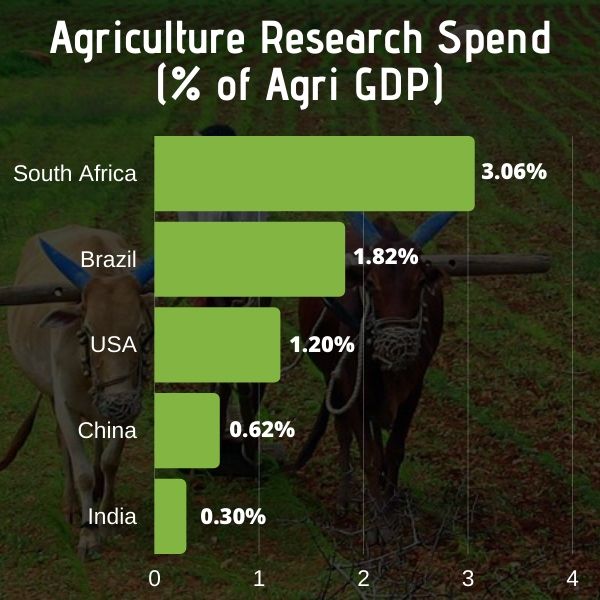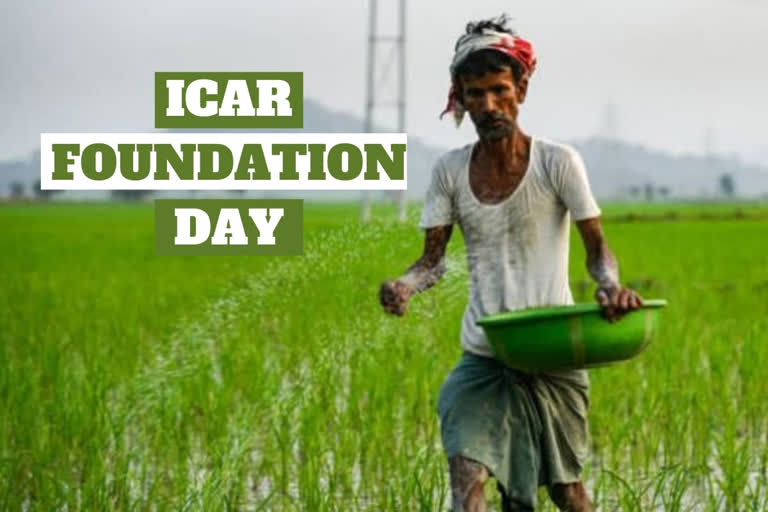Hyderabad: July 16, 2020 marks the 92nd foundation day of the Indian Council of Agricultural Research (ICAR) as it was established on this day in 1929.
Agricultural research in India
Though ICAR was established in 1929, the history of institutional research in India dates back to 1880 with the establishment of Department of Agriculture in each Indian province. Subsequently, in response to the Montagu-Chelmsford Reforms in 1919, the Imperial Agricultural Research Institute (IARI) was established to foster agricultural research and education. Formerly known as Imperial Council of Agricultural Research, it was established on July 16 1929 as a registered society under the Societies Registration Act, 1860 in pursuance of the report of the Royal Commission on Agriculture. Agricultural developmental activities were decentralised and vested with the provincial governments.
In Independent India, the agricultural review team chaired by MW Parker of USDA (1963) suggested far-reaching changes in organization and management of agricultural research in the country. The research centres across the country came under the Indian Council of Agricultural Research (ICAR).
The Council is the apex body for co-ordinating, guiding and managing research and education in agriculture including horticulture, fisheries and animal sciences in the entire country. With 101 ICAR institutes and 71 agricultural universities spread across the country this is one of the largest national agricultural systems in the world.
Read: Agriculture University's new technique helps Rajasthan village meet its water demand
The ICAR has played a pioneering role in ushering Green Revolution and subsequent developments in agriculture in India through its research and technology development that has enabled the country to increase the production of foodgrains by 5.6 times, horticultural crops by 10.5 times, fish by 16.8 times, milk by 10.4 times and eggs by 52.9 times since 1950-51 to 2017-18, thus making a visible impact on the national food and nutritional security.
It has played a major role in promoting excellence in higher education in agriculture. It is engaged in cutting edge areas of science and technology development and its scientists are internationally acknowledged in their fields.
Indian expenditure on Agri research
Though agricultural research is crucial to improve agriculture, the occupation of majority of India's population, the country spends only 0.3 per cent of its agricultural GDP on research.

While our neighbour China spends twice as much, USA spends four time more. However, it is South Africa which is miles ahead, as the percentage of its spending on agricultural research is 10 times more than India.
Importance of agri research
Agricultural research and development is extremely important as increased spending on it would lead to sustainable development with comparatively more equal distribution of resources. Further, it is also believed that increasing R&D expenditure would ensure food security.
According to the book 'Supporting Indian Farms the Smart Way' every rupee spent on agricultural research and development in India yields better returns (11.2), compared to returns on every rupee spent on fertiliser subsidy (0.88), power subsidy (0.79), education (0.97) and even roads (1.10).
Read: Banning 27 pesticides will handover market worth crores to China : CCFI



